November 26th, 2019
5minute read
Violence on the US-Mexican border is nothing new.
The population of Columbus was little more than 300 residents.
Cavalry patrols and guards were doubled in anticipation that trouble was brewing.
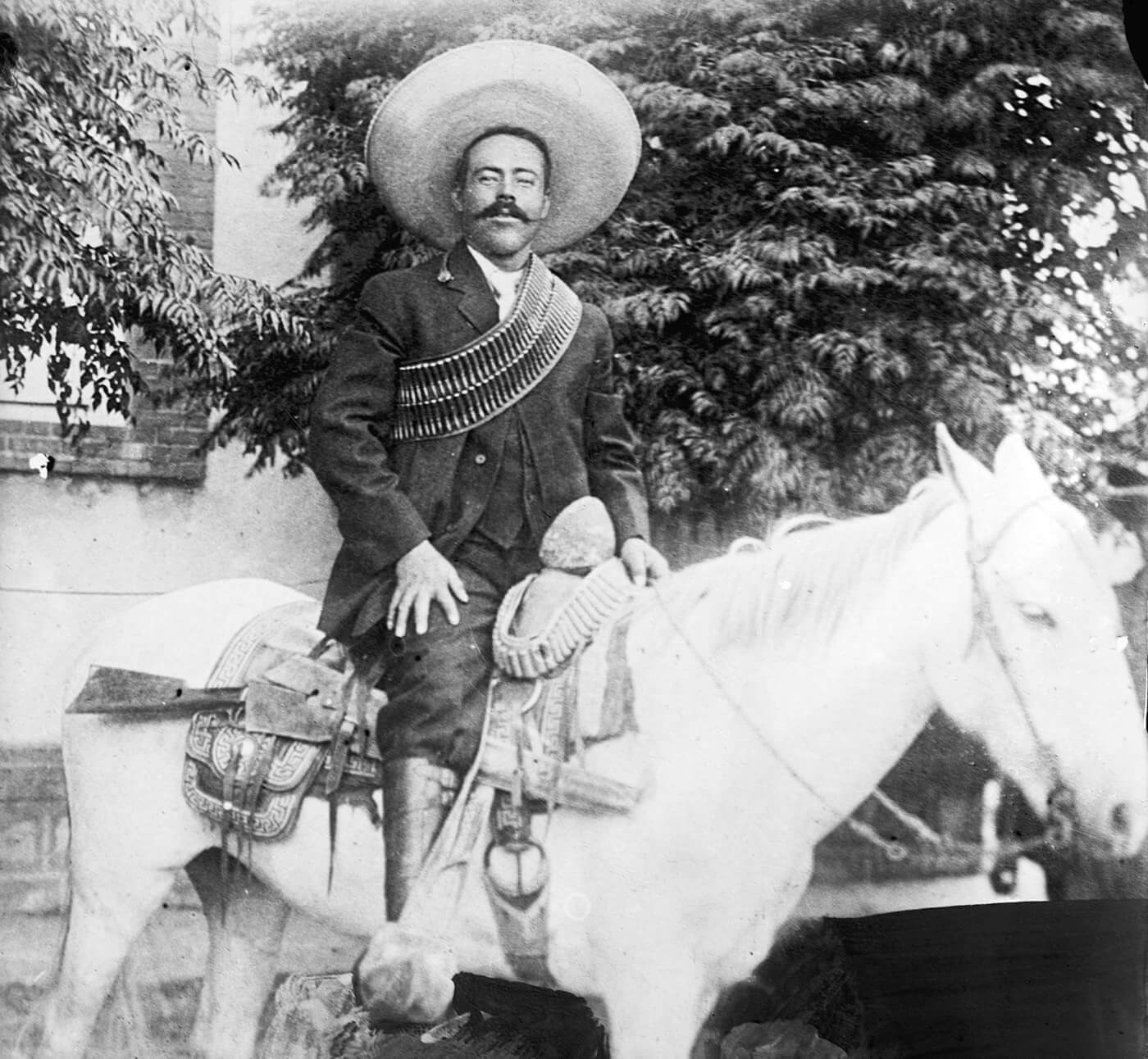
Pancho Villa, a Mexican revolutionary leader, sent his men on an unprovoked attack into United States territory in 1916. Image: United States Library of Congress
Shouts of Viva Villa and Viva Mexico carried through the night air.
Crushing Response
The 13thCavalry came to the rescue, under the command of Colonel Herbert Slocum.
They also carried the M1903 Springfield rifle.
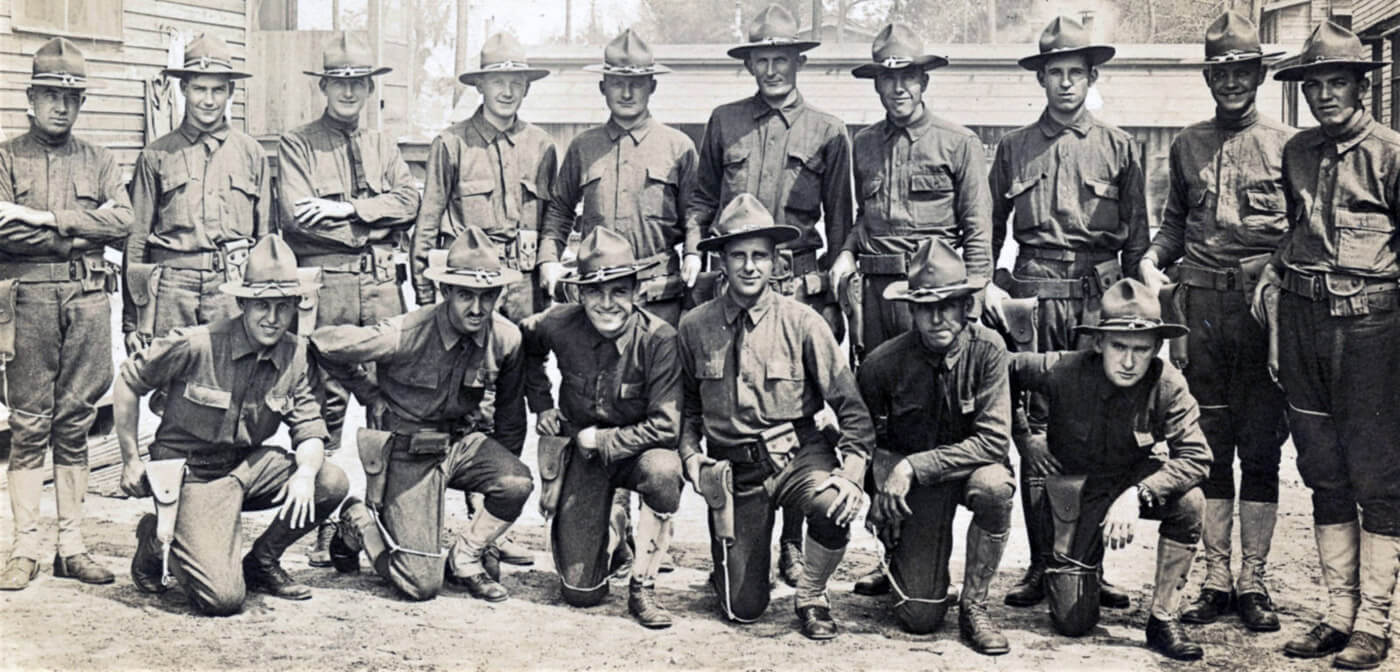
U.S. troops on the Mexican border during 1916. Every man carries an M1911 pistol.
On their hip, of course, was the classic M1911 .45 caliber pistol.
Enraged, and observing the retreating Mexicans, the U.S. Cavalry did not let their opponent slip away.
Tompkins men tangled with Villas rear guard at least four times, drawing blood on each occasion.
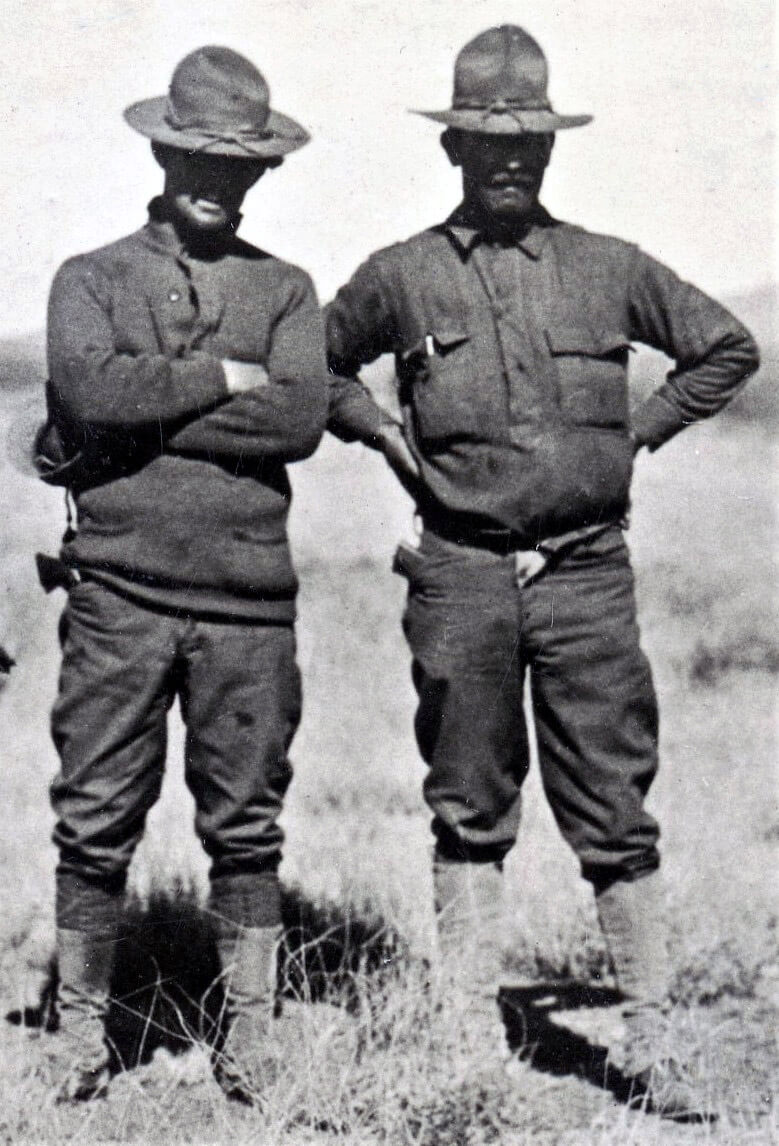
Troopers of the 13thCavalry the morning after the Battle of Columbus, New Mexico. The man at right has a M1911 in his pants’ pocket. Image: National Archives
American sabers slashed and M1911 pistols thundered each time.
For this action, Major Tompkins was awarded the Distinguished Service Cross.
That night, America paid to defend itself in blood.
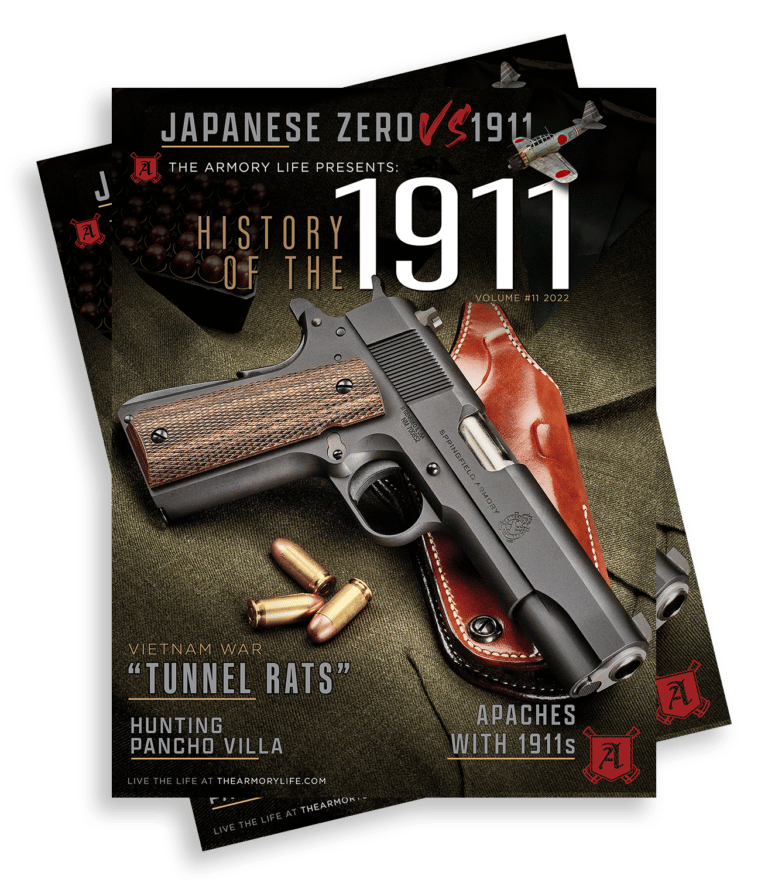
The 13thCavalry suffered eight dead and eight more wounded.
Fifteen American civilians were killed.
Villa left 63 dead on the battlefield in Columbus, and six more were captured.
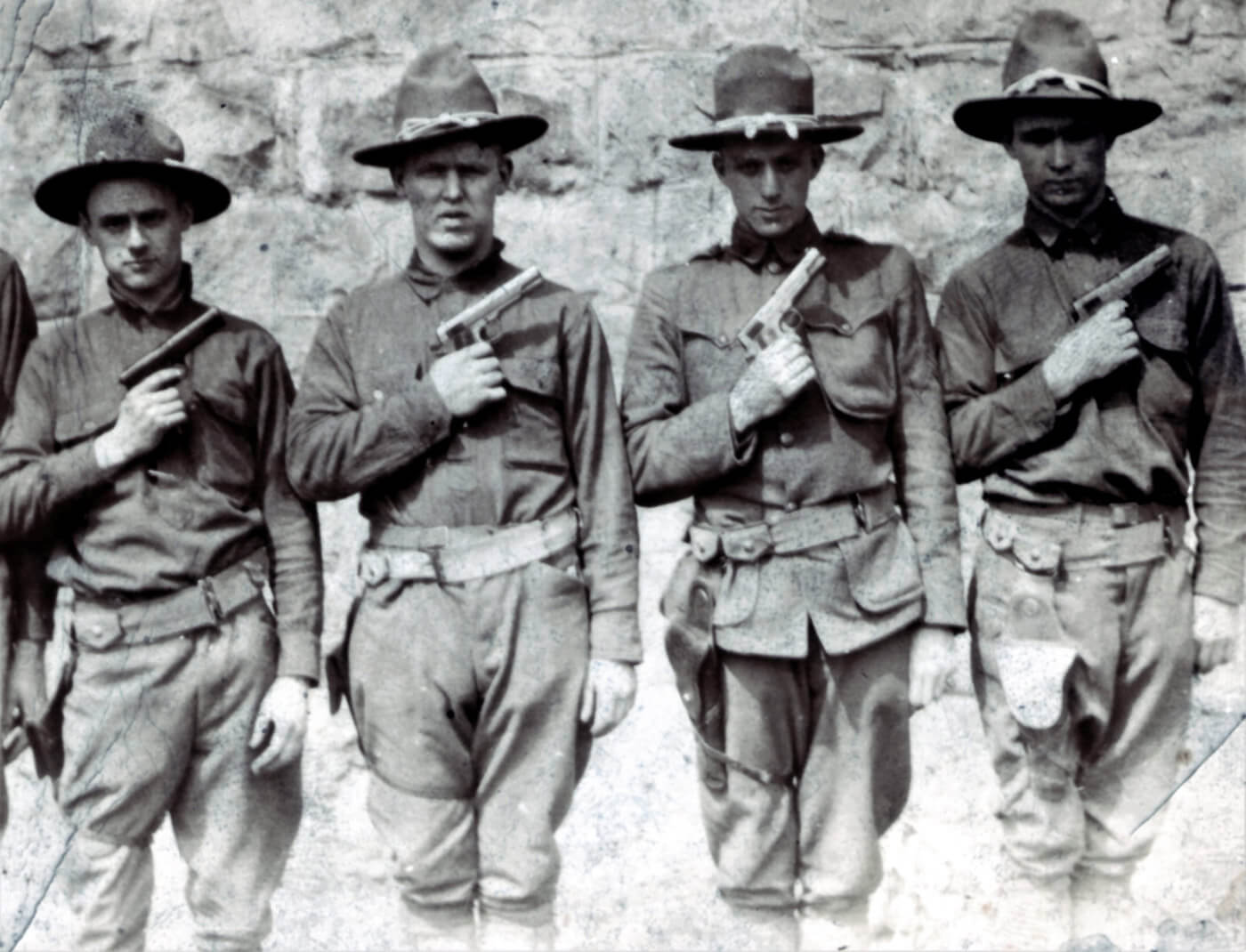
National Guard troops on the Mexican border show off their new M1911 pistols in March 1917.
All but one of them had been hanged by the end of June 1916.
However, the situation was complicated.
Villas men were a revolutionary (and criminal) organization.
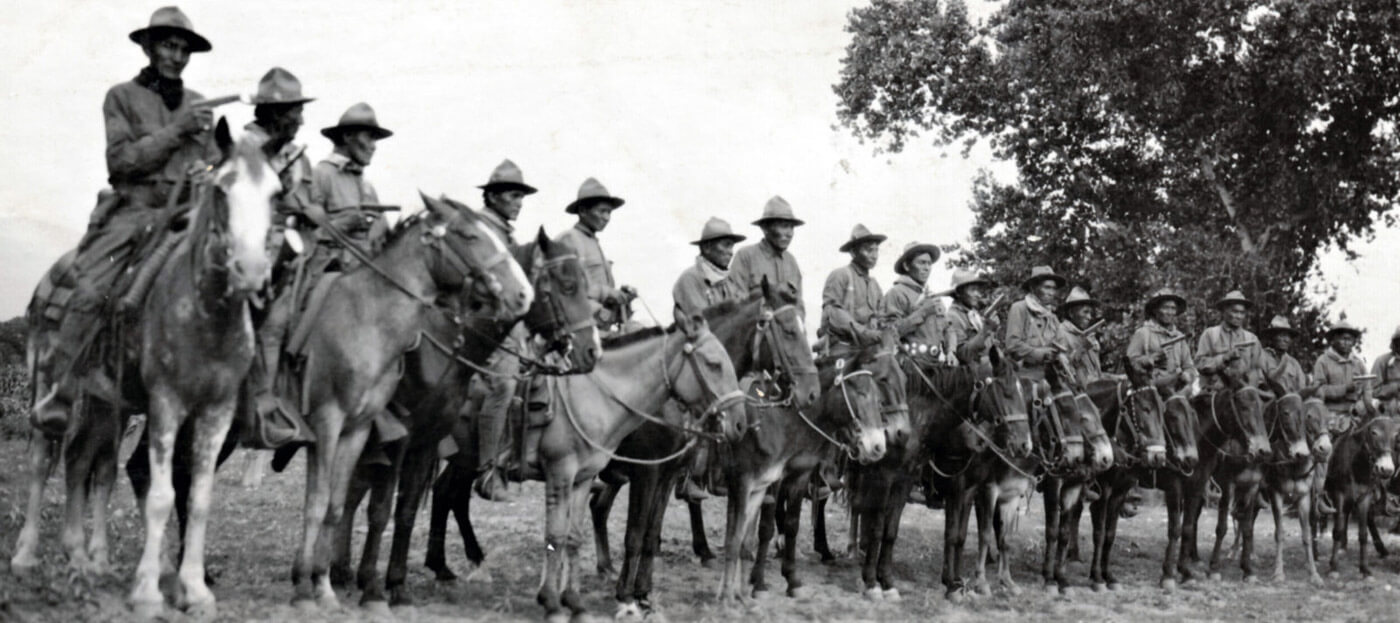
Apache Indian scouts with the Mexican Punitive Expedition forces at El Valle, Mexico during October 1916. Image: National Archives
Their actions were separate from the Mexican government forces.
Regardless, the response from Washington was quick and decisive.
Just one day after the attack on Columbus, President Wilson authorized a punitive expedition to capture Pancho Villa.
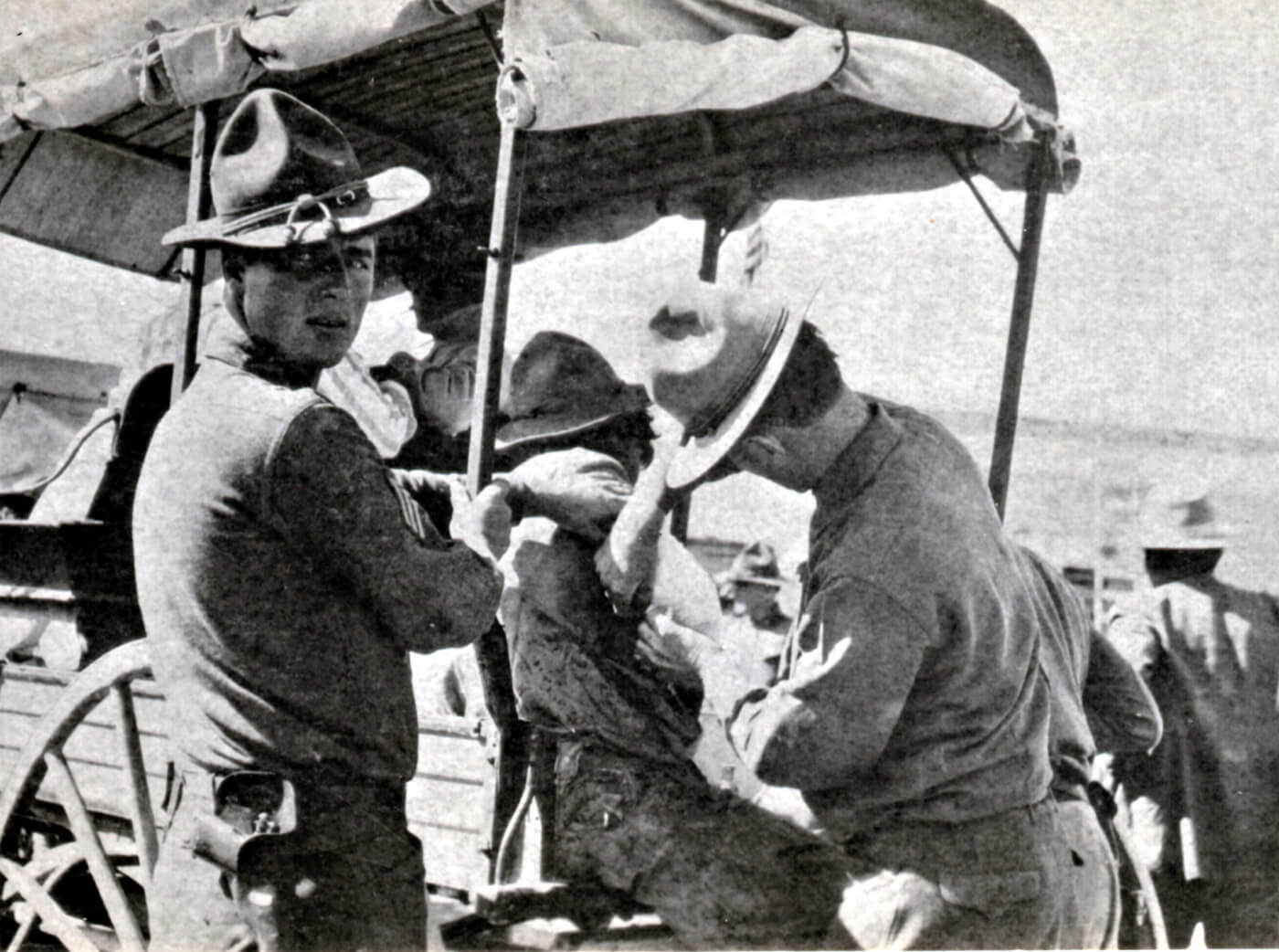
A trooper of the 8th Cavalry with a holstered M1911, Ojinaga, Mexico, during November 1916. Image: National Archives
By the late summer of 1916, more than 100,000 American troops were on duty along the Mexican border.
Villa had not been captured, but outright war with Mexico had been averted.
In April 1917, the United States joined the Allies in the fight against Germany in World War I.
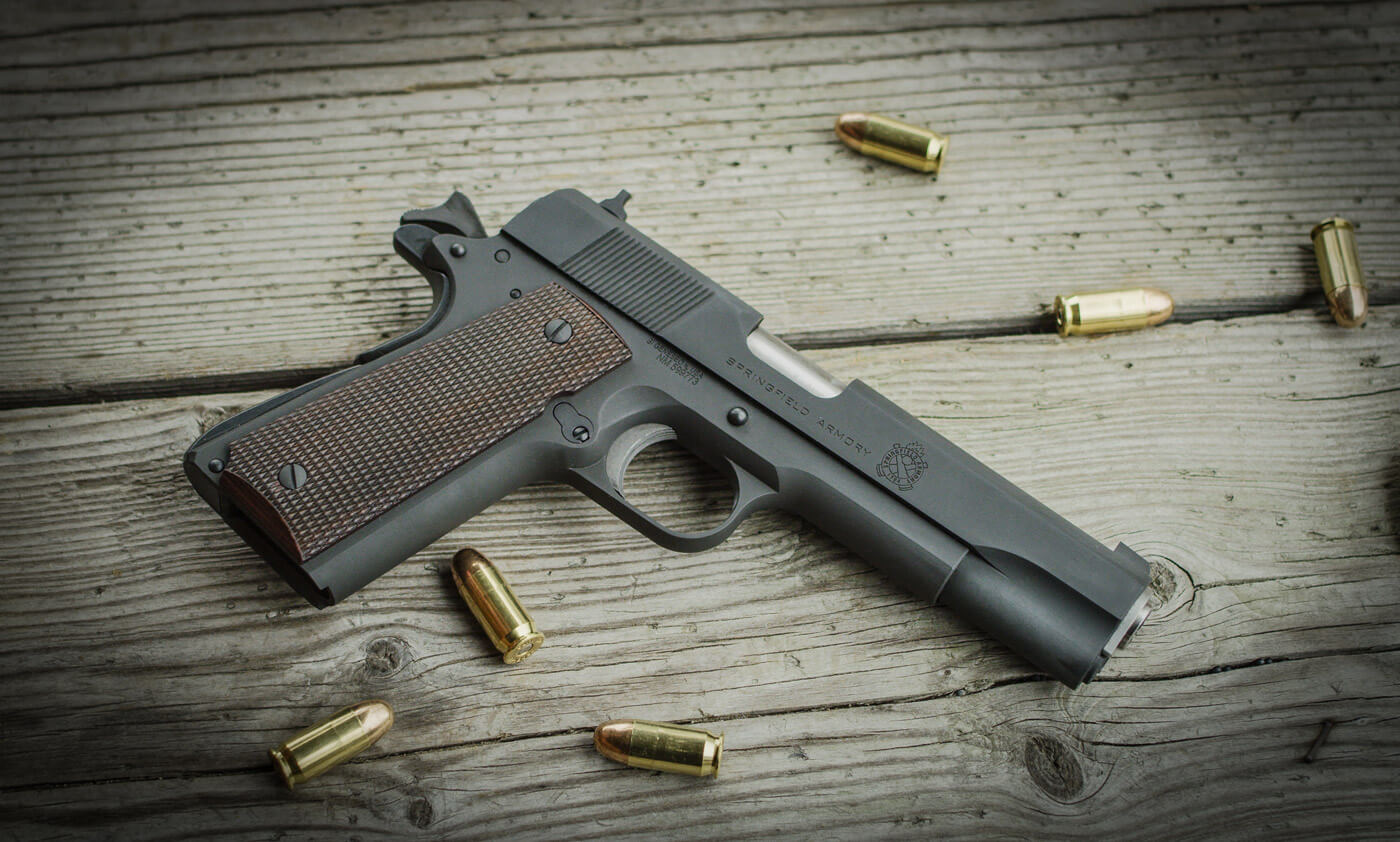
The 1911 has fought, in one form or another, with U.S. troops for more than a century. Springfield Armory’s 1911 Mil-Spec honors that tradition of duty and service.
Justice had been served, and the dead at Columbus had been avenged.
Villa and his men would never again attack America.
The legacy of the classic .45 caliber automatic can be found today in Springfield Armorys 1911 Mil-Spec.

Go to forum thread




